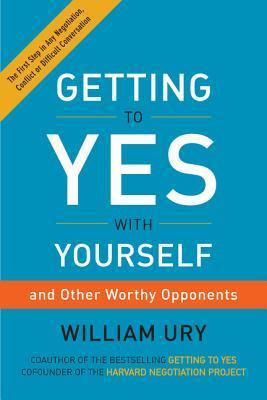What do you think?
Rate this book


208 pages, Hardcover
First published January 13, 2015
Another study showed that people who give away more money to charity tend to be happier and end up, on average, earning more. The research suggests that giving works in part because it increases the probability that someone else will do something good for you.
Einstein: "Is the universe a friendly place?"
Ury: "Einstein reasoned that, if we see the universe as basically hostile, we will naturally treat others as enemies."
Longfellow: "If we could read the secret history of our enemies, we should find in each man's life sorrow and suffering enough to disarm all hostility."
Ury: "It was yet another confirmation for me of the wisdom of setting prejudgment aside and, instead, putting myself in the place of another person with dreams, loves, and grief."
Edwin Markham: "He drew a circle that shut me out/ Heretic, rebel, a thing to flout/But love and I had the wit to win/We drew a circle that took him in!"
Ury: That from the chapter titled Respect Them Even If
In the morning when I look at myself in the mirror, I like to remind myself that I am seeing the person who is probably going to give me the most trouble that day, the opponent who will be the biggest obstacle to me getting what I truly want.